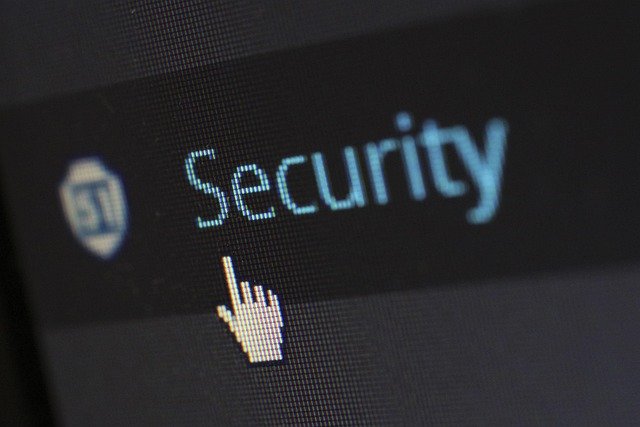VPN Security: Your Guide to Private Browsing Protection
In today's digital landscape, protecting your personal information online has become more crucial than ever. While many internet users rely on private browsing modes, understanding the difference between basic privacy features and comprehensive security tools like VPNs can significantly impact your online safety. This guide explores how to achieve genuine privacy protection and debunks common misconceptions about online security.

Benefits of Secure Private Browsing for Protecting Personal Information
Secure private browsing offers several layers of protection for your personal data. When you use private browsing modes, your browser doesn’t store cookies, browsing history, or form data locally on your device. This prevents other users of the same computer from seeing your online activities. However, the protection extends beyond just hiding your tracks from family members or colleagues.
Private browsing helps prevent websites from tracking your behavior across multiple sessions, reducing the amount of data companies can collect about your preferences and habits. This is particularly important when accessing sensitive information like banking details or personal communications. Additionally, private browsing can help avoid targeted advertising based on your browsing patterns, though it doesn’t completely eliminate all forms of tracking.
How Private Browsing Modes Differ from Full Anonymity Tools
Understanding the limitations of standard private browsing modes is essential for making informed security decisions. Private browsing, also known as incognito mode, only provides local privacy protection. Your internet service provider, network administrators, and websites can still monitor your online activities and collect your IP address information.
Full anonymity tools like VPNs create encrypted tunnels between your device and the internet, masking your real IP address and location. While private browsing clears your local browsing data, VPNs protect your entire internet connection from external monitoring. This means your ISP cannot see which websites you visit, and websites cannot determine your actual location or identity. The combination of private browsing and VPN usage provides comprehensive privacy protection that neither tool can achieve alone.
Common Myths and Facts About Private Browsing Security
Several misconceptions surround private browsing security that can lead to false confidence in your online protection. One prevalent myth suggests that private browsing makes you completely anonymous online. In reality, private browsing only prevents local data storage and doesn’t hide your activities from your internet service provider or the websites you visit.
Another common misconception is that private browsing automatically protects you from malware or phishing attacks. While private browsing can help by not storing malicious cookies long-term, it doesn’t provide active protection against dangerous websites or downloads. Additionally, many users believe that private browsing prevents all forms of tracking, but sophisticated tracking methods like device fingerprinting can still identify users across private browsing sessions.
Key Features to Look for in a Secure Private Browser
When selecting a browser for enhanced privacy protection, several key features should guide your decision. Look for browsers that offer built-in tracker blocking, which prevents advertising networks and analytics companies from following your online behavior. Strong encryption capabilities ensure that your data remains protected during transmission between your device and websites.
Consider browsers that provide customizable privacy settings, allowing you to adjust security levels based on your specific needs. Features like automatic HTTPS enforcement help ensure secure connections to websites, while built-in password managers can help you maintain strong, unique passwords without compromising convenience. Some browsers also offer integrated VPN services or easy integration with external VPN providers for enhanced protection.
Importance of Using Encryption and VPNs for Enhanced Online Privacy
Encryption and VPN technology form the backbone of comprehensive online privacy protection. When you connect to a VPN service, all your internet traffic gets encrypted before leaving your device, making it unreadable to anyone who might intercept it. This protection is especially crucial when using public Wi-Fi networks, where cybercriminals often attempt to steal personal information.
VPNs also provide geographic flexibility by allowing you to connect through servers in different countries, helping you access region-restricted content while maintaining privacy. The encryption protocols used by quality VPN services ensure that even if your data is intercepted, it remains virtually impossible to decode without the proper decryption keys.
| VPN Provider | Monthly Cost | Key Features | Server Locations |
|---|---|---|---|
| ExpressVPN | $12.95 | Military-grade encryption, 24/7 support | 94+ countries |
| NordVPN | $11.95 | Double VPN, CyberSec protection | 60+ countries |
| Surfshark | $12.95 | Unlimited devices, CleanWeb | 65+ countries |
| CyberGhost | $12.99 | Optimized servers, no-logs policy | 90+ countries |
Prices, rates, or cost estimates mentioned in this article are based on the latest available information but may change over time. Independent research is advised before making financial decisions.
The combination of secure private browsing and VPN protection creates a robust defense against various online threats. While private browsing handles local privacy concerns, VPNs address network-level security and anonymity issues. Understanding these complementary technologies helps you make informed decisions about your online privacy strategy. Remember that true online security requires a multi-layered approach, combining secure browsers, VPN services, and good digital hygiene practices to protect your personal information effectively.




